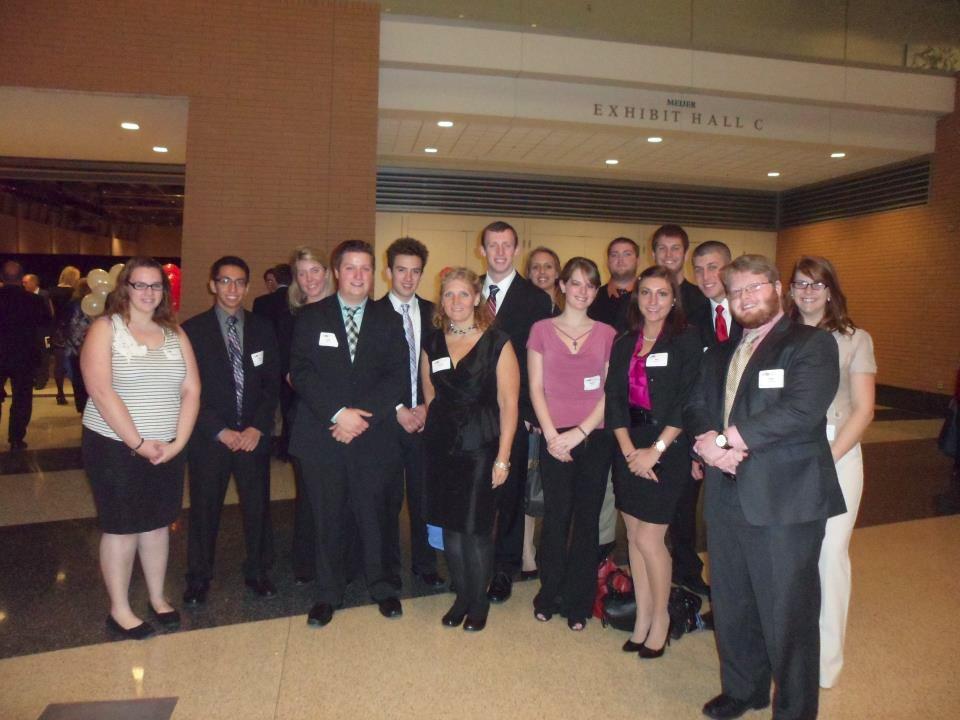GV’s College Republicans weigh in on Michigan primary

Courtesy Photo / Nick Sutton The GVSU College Republican group at the 2011 Lincoln Day Dinner
Feb 27, 2012
While the debates wear on and the Michigan primary approaches, the College Republicans at Grand Valley State University are deciding who they would like to see as the nominee.
In a poll conducted during the Feb. 22 debate, the College Republicans evenly split between Ron Paul and Mitt Romney, each with five votes. Rick Santorum received three and Newt Gingrich received none. This split is the reason behind predictions of a brokered Republican convention, but more importantly, it reveals the growing trend inside the party itself.
To some of the College Republicans, the person they vote for in the primary does not matter nearly as much as getting President Obama out of the White House.
“Right now I think the most important thing is to get Obama out,” said Rachel Doane, a junior advertising major and Romney supporter. “Right now I’m supporting (Romney) because he’s the most electable.”
However, Romney’s “electability” may soon be over as he has lost the last three out of four states that held contest. The fourth, Maine, continues to be hotly debated. To some, this is simply the writing on the wall.
“I think the last three contests (Santorum) won really propelled him to the front,” said Ryan Hoogmoed, a freshman and Santorum supporter. “I think he’s gaining a lot of support now.”
This may be Santorum’s week to shine, but as seen throughout this race to the nomination, all but one candidate has been the “flavor of the week.”
Santorum, like the other candidates, must appeal to swing voters both now and in November. Zack Barber, a marketing student and Republican since 2007, described the pros and cons of the candidates.
“I’d be happy with any of them,” Barber said, having no particular candidate in mind.
Barber said that he would decide the night before he votes. It is swing voters such as Barber that drive the constant movement in the polls when it comes to nominee hopefuls Gingrich, Santorum and Romney.
Consistently placing first or second in national polls, Ron Paul is the only candidate who has seen steady growth. Instead of fluctuating, Paul has moved slowly upward, and is relying on the caucus states, essentially microcosms of the Electoral College, to vault him into the nomination.
Since the Iowa caucus, the rise of an anti-Romney candidate has been talked about and predicted. However, a single challenger remains elusive.
Ryan Kiplinger, a senior majoring in political science, spoke about the anti-Romney candidacy.
“I think that they’re all vying to be anti-Romney,” Kiplinger said. “Ron Paul is the anti-thesis to Romney.”
During the Democratic National Convention in 1968, the party split in brutal fashion.
The new left, energized by the anti-war and civil rights movements, was beaten in the streets of Chicago by police officers, under the orders of the established Democrats.
Likewise, the ‘Paulites’ represent a similar break.
If the Republican contests have demonstrated anything, they show that the youth overwhelmingly supports Paul, who came in first among voters under 30 in the Iowa, new Hampshire and South Carolina contests.
“The youth movement will carry on the liberty movement,” Kiplinger said.

























